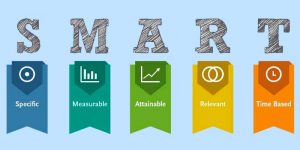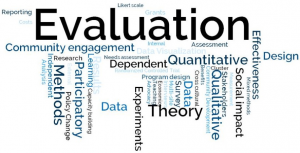
I understand that evaluation is an ongoing component of the dynamic and interactive social work practice process with and on behalf of diverse individuals, families, groups, organizations, and communities. I will recognize the importance of evaluating processes and outcomes to advance practice, policy, and service delivery effectiveness. I will understand theories of human behavior and the social environment and critically evaluate and apply the knowledge in evaluating outcomes. I will be able to understand qualitative and quantitative methods for evaluating outcomes and practice effectiveness. I will be able to select and use appropriate methods for the evaluation of outcomes. I will apply knowledge of human behavior and the social environment, person-in-environment, and other multidisciplinary theoretical frameworks to evaluate outcomes. I will critically analyze, monitor, and evaluate intervention and program processes and outcomes. I will be able to apply evaluation findings to improve practice effectiveness at the micro, mezzo, and macro levels.
Evidence
9A – Select evidence-based evaluation strategies according to their efficacy with specific client systems
Course Evidence: During the Advanced Clinical 2 (Group Therapy) class, I was tasked with conducting a group therapy session for pseudo-clients teenagers dealing with anxiety. Each pseudo-client had been referred to me due to behavioral outbursts that lead to problematic situations. I transcribed an in-depth paper based on a 30-minute recording, which evaluates everything I said during the session, corrects my words to say them in a more effective therapeutic approach, and recognizes specific therapeutic skills I used during the session. I was able to demonstrate group leadership and effectively evaluate myself during this assignment. I had to plan an agenda for the group session and effectively diffuse problematic group members who sought to disrupt the group. Please view my Self-Assessment Paper
Field Evidence: During field practice, I researched evidence-based strategies when working with clients with Post-Traumatic Stress Disorder (PTSD). Mindfulness exercises and grounding techniques have been proven beneficial in reducing flashbacks for persons with PTSD. Trauma-Informed Care (TIC) is about the clinician being aware of how trauma affects a person. Trauma-Focused Cognitive Behavioral Therapy (TF-CBT) has also been proven beneficial in identifying clients’ thoughts that make them feel certain things. In turn, they behave in ways they do not want to behave. These thoughts negatively impact the client’s level of functioning. Motivational Interviewing (MI) with persons who have PTSD is focused on stages of change. The goal is to help patients change any behaviors and coping styles not previously recognized as problematic. Patients will perceive PTSD intervention components as more relevant, thereby fostering greater engagement in treatment and more adaptive post-treatment coping. Increased awareness related to Eye Movement Desensitization and Reprocessing (EMDR) has also been proven beneficial in treating patients with PTSD, but this modality requires extensive training. I utilized TF-CBT, MI, and TIC in individual therapy sessions with clients who had flashbacks from childhood sexual abuse.
9B: Evaluate the efficiency and effectiveness of practice outcomes across systems.
Course Evidence: During Advanced Administrative Practice 2, my group and I formulated Evaluations for staff and volunteers working at Healing Hearts non-profit organization. These evaluations would help both managers and employees to review job descriptions to make appropriate changes, set goals, and address unnecessary roadblocks and challenges that sabotage high performance.
Other Evidence: During Advanced Administrative Practice 1, my group and I created a Survey that evaluates the need for parent education classes within the Hamilton County area for the McNabb Center clients. These surveys utilize both quantitative and qualitative questions for participants.

Field Evidence: During field practice at Helen Ross McNabb Center, I used a Likert Scale having the client to rate their experience with anxiety, depression, or other issues on a scale of 1-10 when creating treatment plans and in review after each therapy session. I also set long-term measurable goals, short-term measurable goals and discuss the intervention/action plan for accomplishing these goals with the clients. This student’s tool is Daily Living Activities (DLA-20), where I check their daily living needs. Another tool used by me was a satisfaction survey at HRMC that gauge how satisfied clients are with their services. There is an ASAM used in Substance Abuse Counseling that is used to assess the level of care needed for individuals with addiction issues. I conducted a pre and post-survey at the Lighthouse to gauge the activities’ effectiveness in the implemented curriculum I created for my Special Project. Please see examples.